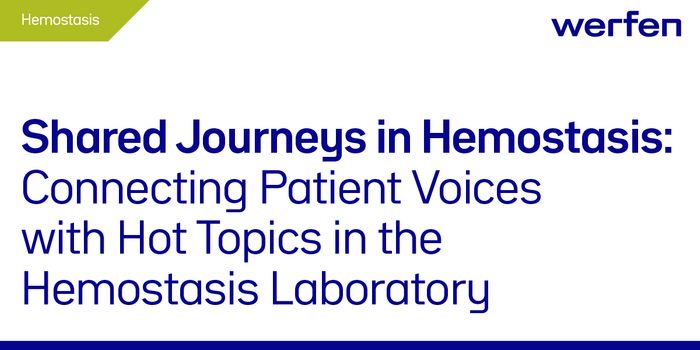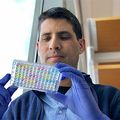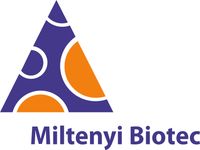Dr. Ehrlich is Professor of Microbiology and Immunology, and Otolaryngology-Head and Neck Surgery at Drexel University College of Medicine (DUCoM) in Philadelphia, PA, USA. He also directs: the Center for Genomic Sciences (CGS); the Center for Advanced Microbial Processing ... (CAMP); and the Center for Surgical Infections and Biofilms within the Institute for Molecular Medicine and Infectious Disease at DUCoM. In addition, he directs the Core Genomics Facility for the Drexel University as a whole. CGS scientists utilize a broad array of comparative genomic techniques and bioinformatic tools, many developed in-house, to identify and characterize both virulence genes within pathogens, and susceptibility genes to pathogens within their hosts. Dr Ehrlich is also one of the founders of the field of Clinical Molecular Diagnostics (MDx), having been involved in the original application of PCR for the detection of human retroviruses in 19851. He founded the MDx Division at UPMC and used these experiences to author the first textbook/lab manual for infectious disease (ID) MDx2. Together with a team of like-minded pioneers he was one of the founders of the Association for Molecular Pathology and served as the first co-chair of the ID section. Dr Ehrlich counts among his major contributions to science the mapping and cloning of several major human disease genes3,4, and the re-writing of much of our understanding of chronic bacterial pathogenesis5,6. The latter began with his promulgation of the biofilm paradigm to explain many facets of chronic mucosal microbial infections7-9. Working with Chris Post, he started his explorations into chronic middle-ear disease in children in the early 90's which he has since repeatedly generalized such that it is now widely accepted that the vast majority of all chronic microbial infections are biofilm-associated10,11. He also advanced the Distributed Genome Hypothesis (DGH12,13) to explain the enormous clinical variability among strains of a bacterial species, which together with the biofilm paradigm form the bases for his rubric of Bacterial Plurality6. His work in human genetics combined with the laboratory resources necessary to test the DGH have resulted in his having played a role in the development of several waves of genomic technology over the last quarter century including microsatellite mapping, microarrays, and next-generation sequencing. More recently he has developed the concept of bacterial population-level virulence factors and has for the first time within the field of bacterial genomics used statistical genetics and machine learning algorithms approaches to identify unannotated distributed genes that are associated with virulence. These computational methodologies provides a non-biased, top-down approach to prioritize the annotation of hypothetical genes14. Coincident with the recent relocation of his research enterprise to DUCOM he founded CAMP which functions as a collaborative multi-discipline facility for exploitation of a suite of technological advances, many developed within the CGS, which permit the identification, cloning, heterologous expression, and biochemical verification of commercially important biosynthetic and biodegradative pathways from what he refers to as the "Genomic Dark Matter". This approach came out his successful collaborative studies with Dr. David Sherman at the University of Michigan wherein they used multiple omics technologies (and developed the term meta-omics) to isolate and characterize all of the genes for a novel biosynthetic pathway for an important anti-cancer drug from an unculturable endosymbiotic bacterium of a tunicate15. Over the past several years Dr Ehrlich has overseen the development of a novel ultra-high-fidelity microbiome assay that provides quantitative, species-specific analyses of microbial consortia using whole-gene 16S amplification and sequencing on the Pacific Biosciences third generation long-read sequencing platform16. When combined with a state-of-the art bioinformatics pipeline that takes advantage of novel pathway- algorithms and a custom database, developed in-house, this system provides unprecedented accuracy. In collaboration with Dr Curtis Harris at the NCI, Dr Ehrlich and his team applied this high-fidelity microbiome assay to identify bacterial species-specific changes to the lung microbiome associated with a specific TP-53 mutation - providing the first microbial biomarker for cancer17. Dr Ehrlich's lifelong interest in emergent MDx and "omic" technologies led to his recent appointment as Director of the Meta-Omics Core Facility at the Sidney Kimmel Cancer Center, a consortium NCI-designated Cancer Center involving Thomas Jefferson University and Drexel University. Dr Ehrlich's latest paradigm-changing hypothesis is that Alzheimer's disease results from a combination of chronic bacterial infections of the brain (primarily originating from the periodontium) and the brain's anti-microbial and inflammatory responses to these infections. Dr. Ehrlich was elected as fellow of the American Association for the Advancement of Science in 2014 and as a fellow of the American Academy of Microbiology in 2022. He has won numerous awards for his research and teaching.
See more See lessProgram Committee Share
-
Garth D. Ehrlich, PhD, FAAAS
Dr. Ehrlich is Professor of Microbiology and Immunology, and Otolaryngology-Head and Neck Surgery at Drexel University College of Medicine (DUCoM) in Philadelphia, PA, USA. He also directs: the Center for Genomic Sciences (CGS); the Center for Advanced Microbial Processing ...
See more -
Matthew Flegal
Matt entered the research field over 20 years ago as a lab animal technician at the TSI/Mason contract research facility. He has worked at both contract facilities such as TSI and OREAD Biosafety as well in industry at Pharmacia, Pfizer, and Sanofi-Aventis. During that period he ...
See more -
Svetlana Y. Folimonova
Dr. Svetlana Y. Folimonova received her PhD in Microbiology from Moscow State University, Moscow, Russia. She held a postdoctoral position at the S. R. Noble Foundation, Ardmore, Oklahoma and a postdoctoral position at the University of Florida, Citrus Research and Education ...
See more -
K. Leigh Greathouse, PhD, MPH, MS, RD
Dr. K. Leigh Greathouse is an Assistant Professor at Baylor University with appointments in Biology and Nutrition. Her background spands the fields of cancer biology, epidemiology, and nutrition. She recived her Ph.D. from the University of Texas and M.D. Anderson Cancer Center ...
See more -
Jonas Korlach
Jonas Korlach was appointed Chief Scientific Officer of Pacific Biosciences in July 2012. He was previously a Scientific Fellow, supporting commercial development of the PacBio RS II system and performing research aimed at developing new applications for SMRT technologies. He ...
See more -
Stephen S. Morse, PhD, FAAM, F.A.C.E.
Stephen S. Morse, Ph.D., is Professor of Epidemiology at the Columbia University Mailman School of Public Health, where he also serves as Director of the Infectious Disease Epidemiology certificate and as chair of the Columbia University Institutional Biosafety Committee (IBC) ...
See more -
Rupak Shivakoti, PhD
Dr. Rupak Shivakoti received his MSPH in Public Health and his PhD in Microbiology and Immunology from the Johns Hopkins University. After a post-doctoral training in Infectious Diseases at Johns Hopkins School of Medicine, he is now an Assistant Professor of Epidemiology at ...
See more -
Dorottya Nagy-Szakal, MD PhD
Dorottya earned her MD and PhD in clinical medicine from Semmelweis University of Medicine in Hungary. Holding postdoctoral fellowships at Baylor College of Medicine/Texas Children's Hospital and Columbia University, she has 10+ years of experience in translational medicine ...
See more -
Priscilla Li-ning Yang, PhD
Priscilla earned her PhD in Bio-organic Chemistry at the University of California, Berkeley. Following postdoctoral training in viral immunology at Scripps Research, she established her own research group combining chemical and pharmacological approaches to address fundamental ...
See more
Microbiology Week Virtual Event Series 2022

Labroots is excited to bring together academia and industry, research experts, virologists, microbiologists, healthcare professionals, and leading biomedical scientists under one roof at our 8th Annual Event in the Microbiology Week Virtual Event Series, held on September 6-8, 2022!
Microbiology Week Virtual Event Series 2022 offers a 3-day content-rich program with invited lectures, thought-provoking discussions, and a virtual poster hall to explore global developments in interdisciplinary microbiology. Discussions will cover the prevention, diagnosis, and treatment of infectious diseases and new discoveries that have the potential to improve human, animal, and plant health. Additional topics range from virology, pathogenesis, genomics, and epidemiology to microbial communities and biofilms, to research into improved vaccines, diagnostics, and antiviral drugs for Influenza.
This year's event includes the following topics and tracks:
Day 1 - September 6th:
Immunology:
- Plant Defenses to Disease
- Bacterial Responses to Infections
- Host Immune Response to Bacterial Pathogens
- Innate Immunity
Day 2 - September 7th:
Respiratory Viruses:
- Genomics of Viruses
- Immunity to Viruses
- Emerging and Re-Emerging Respiratory Viruses
Microbial Communities:
- The Microbiome in Cancer Risk and Treatment
- The Microbiome in Women's Health
- Viromes and Bacteriophages
Day 3 - September 8th:
Infectious Disease:
- Viral Replication
- Antimicrobial Resistance and Novel Antimicrobial Strategies
- Point of Care Diagnostics – Lessons from COVID-19 Testing
- Viral Vaccines
Big Data in Infectious Disease and Host Response:
- Genomic Epidemiology and Pandemic Preparedness
- Systems Biology
- Integrative Analysis of Multi-Omics Data
Call for Posters — Virtual poster sessions offer the opportunity to present your data to a global audience via a PDF poster with optional video summary, and discuss the results with interested colleagues across the globe through email or our virtual networking lounge. Plan now to have your poster included in the 2022 Microbiology Virtual Week. Read about how to optimize your poster for a virtual audience here.
- Submit your abstract here.
Our virtual conference allows you to participate in a global setting with no travel or cost to you. The event will remain open for 2 years from the date of the live event, and the webinars will be available for unlimited on-demand viewing. This virtual conference also offers increased reach for the global microbiology community with a high degree of interaction through live-streaming video and chat sessions.
Continuing Education - Labroots is approved as a provider of continuing education programs in the clinical laboratory sciences by the ASCLS P.A.C.E. ® Program. By attending this event, you can earn 1 Continuing Education credit per presentation for a maximum of 50 credits.
Labroots is a proud partner of Chati, a virtual event platform that allows for the hosting of engaging and interactive virtual and hybrid events, catering to businesses of any vertical or size.
Connect with us!
When you attend the event remember to use the hashtag #LRmicro to follow the conversation and connect with other members of the global Microbiology community!
Follow @Microbiology_LR on Twitter and @Microbiology.LR on Facebook to connect with our specialist Microbiology Writers and stay up to date with the latest Trending News in Microbiology. And now, you can also join our Microbiology Interest Group on LinkedIn to connect with us, and the wider professional Microbiology community!

Agenda Share
-
SEP 08, 2022 3:00 PM PDT
Congenital Cytomegalovirus: The Case for Newborn Screening
Megan Pesch, MD, MS
Developmental and Behavioral Pediatrics University of Michigan Medical School and the National CMV FoundationBIOGRAPHYSponsored By: Luminex - A DiaSorin Company -
SEP 08, 2022 1:30 PM PDT
Panel Presentation: Optimization of Wastewater SARS-CoV-2 Samples to Enable NGS-based Detection of Emerging Variants
Dominic O'Neil, MS, MBADirector of Microbiome Product Development, QIAGENJonathan Shaffer, PhD, MBADirector, R&D, NGS Assay Technologies, QIAGEN -
SEP 08, 2022 12:00 PM PDT
Panel Presentation: RT-LAMP: Best Practices and Tips to Accelerate Detection of Viral Pathogens, Including SARS-CoV-2
Leann Buhrow, PhDR&D Scientist, Molecular Biology, Thermo Fisher Scienti...Ingrida Vendelė, PhDR&D Manager for Molecular and Synthetic Biology, Thermo... -
SEP 08, 2022 10:30 AM PDT
Keynote Presentation: Lipoprotein Receptors are Evolutionarily Conserved Cellular Receptors for Divergent Alphaviruses with Live Q&A
Jonathan Abraham, M.D., Ph.D.
Assistant Professor of Microbiology at Harvard Medical School, Associate Physician in Infectious Diseases, Brigham & Women's HospitalBIOGRAPHY -
SEP 08, 2022 9:00 AM PDT
Keynote Presentation: Strategies for Epidemics Containment in the Context of the Anthropocene's Planet Degradation with Live Q&A
-
SEP 08, 2022 7:30 AM PDT
Fast and Reliable Gene Synthesis for Optimized Protein Expression
-
Getting Ready for The Next Pandemic: Communication of Data in Crisis Mode
Imre Varju, MD, PhD, MPH
Research Fellow, Semmelweis University, Academic Trainee, Columbia University Mailman School of Public HealthBIOGRAPHY -
Inferring Selection Effects in SARS-CoV-2 with Bayesian Viral Allele Selection
-
Towards Using Host Targeted Interventions Against Infectious Diseases
Alexis Kaushansky, PhD
Associate Professor of Pediatrics, University of Washington, Adjunct Associate Professor of Global Health, Center for Global Infectious Disease Research, Seattle Children's HospitalBIOGRAPHY -
Transposon Mediated Forward Genetic Screens Identify Cell Intrinsic Resistance to Emerging Viral Pathogens
Anna Bruchez, PhD
Assistant Professor, Department of Pathology, Case Western Reserve University School of MedicineBIOGRAPHY -
Viruses Behaving Badly: How Viruses Subvert Cellular Metabolism to Replicate
Bryan Mounce, PhD
Assistant Professor, Department of Microbiology and Immunology, Loyola University Chicago Stritch School of MedicineBIOGRAPHY -
SEP 07, 2022 1:30 PM PDT
Validation and Standardization Of DNA Extraction and Library Construction Methods for Metagenomics-Based Human Fecal Microbiome Measurements
Dieter M. Tourlousse, PhD
-
SEP 07, 2022 12:00 PM PDT
A Universal "Day Zero" Infectious Disease Testing Strategy Exploiting CRISPR-based Sample Depletion and Metagenomic Sequencing with Live Q&A
Jon Armstrong, MSc
Vice President of Research and Development, Jumpcode GenomicsBIOGRAPHYSponsored By: Jumpcode Genomics -
SEP 07, 2022 10:30 AM PDT
Keynote Presentation: Functional Consequences of the Human Enteric Virome in IBD
-
SEP 07, 2022 9:00 AM PDT
Panel Presentation: Antimicrobial Resistance (AMR) Summit: Identifying Antimicrobial Resistance from Sample to Insight
Daniel Hand, PhDSenior Field Application Scientist EMEA, QIAGEN Digital...Dominic O'Neil, MS, MBADirector of Microbiome Product Development, QIAGENDylan BarberaGlobal Product Manager, UNGS Genotyping -
SEP 07, 2022 7:30 AM PDT
Keynote Presentation: The Importance of Timing: Managing COVID-19 with Live Q&A
Daniel Griffin, MD, PhD
Chief, Division of Infectious Disease - at OPTUM TriState, Clinical Instructor of Medicine - Columbia University College of Physicians and Surgeons, Department of Medicine-Division of Infectious DiseasesBIOGRAPHY -
Bacterial Response and Adaptation to Host-Targeting Chemotherapies Alters Drug Metabolism
Amir Mitchell, PhD
Associate Professor, Department of Systems Biology, Department of Molecular, Cell, and Cancer Biology, Program in Molecular Medicine. University of Massachusetts Chan Medical SchoolBIOGRAPHY -
Polymicrobial Biofilms: The Importance of Building Better Biofilm Models for Research Translation
Shaun N. Robertson, PhD
CEO- MiDx, Research Fellow & ICURe ECR, National Biofilms Innovation Centre, Biodiscovery Institute, University of NottinghamBIOGRAPHY -
The Vaginal Microbiome and Susceptibility to Urogenital Infections
Susan Tuddenham, MD MPH
Assistant Professor, Infectious Diseases, Johns Hopkins Department of MedicineBIOGRAPHY -
Vaginal Microbiome and Immunity
Smita Gopinath, PhD
Assistant Professor, Department of Immunology and Infectious Diseases, Harvard School of Public HealthBIOGRAPHY -
Viral Genomics of SARS-CoV-2 and its Variants
Dirk Dittmer, Ph.D., MS
Professor, UNC Department of Microbiology and Immunology Director, University of North Carolina at Chapel Hill, Viral Genomics (Vironomics) CoreBIOGRAPHY -
SEP 06, 2022 3:00 PM PDT
cGas-Like Enzymes in Bacterial Immunity
Aaron Whiteley, PhD
Assistant Professor, Department of Biochemistry, University of Colorado BoulderBIOGRAPHY -
SEP 06, 2022 1:30 PM PDT
Escaping The Lung - What Can Circulating Mycobacterium Tuberculosis Dna Tell Us About Tb Infection in Humans?
Pranabashis Haldar, PhD
Associate Clinical Professor of Respiratory Medicine and Lead Physician for Clinical TB Services, Leicester Glenfield HospitalBIOGRAPHY -
SEP 06, 2022 12:00 PM PDT
Dissecting Host/Pathogen Interactions in the Gastrointestinal Epithelium
Megan L. Stanifer, PhD
Assistant Professor, Department of Molecular Genetics and Microbiology, University of Florida, College of MedicineBIOGRAPHY -
SEP 06, 2022 10:30 AM PDT
Panel Presentation: Validating a Fluorescence Cell Sorter for Infectious Disease and Immunology Applications
Matt RiddleFlow Cytometry Specialist at Miltenyi BiotecMarissa FahlbergAssistant Director of the Flow Cytometry Core at Tulane... -
SEP 06, 2022 9:00 AM PDT
Accelerating Vaccine Development with Automated HTS Library Prep
-
SEP 06, 2022 7:30 AM PDT
Keynote Presentation: AI and Multi-Omics in Perinatal Period
Josef Neu, M.D.
Professor, Department of Pediatrics, Division of Neonatology, University of FloridaBIOGRAPHY -
Mechanisms of Immune Evasion by RSV Nonstructural Proteins
Daisy Leung, PhD
Associate Professor, Department of Medicine, Division of Infectious Diseases Washington University School of MedicineBIOGRAPHY -
Pleural Macrophages Promote Recovery From Influenza Virus Infection
Juliet Morrison, PhD
Assistant Professor, Department of Microbiology and Plant Pathology University of California, RiversideBIOGRAPHY -
Resistance To Darunavir and Fifth Generation HIV Protease Inhibitors
Ronald Swanstrom, PhD
Postelle Distinguished Professor of Biochemistry and Co-Director of the UNC CFAR University of North Carolina Chapel HillBIOGRAPHY -
Sensitizing Antibiotic-Tolerant Bacteria to Topoisomerase Inhibitors to Reduce Infection Relapse and Resistance Development
Wendy W.K. Mok, PhD
Assistant Professor, Department of Molecular Biology and Biophysics UConn HealthBIOGRAPHY
- Infectious Disease
- Antimicrobial Resistance and Novel Antimicrobial Strategies
-
Resistance To Darunavir and Fifth Generation HIV Protease Inhibitors
Ronald Swanstrom, PhD
Postelle Distinguished Professor of Biochemistry and Co-Director of the UNC CFAR University of North Carolina Chapel HillBIOGRAPHY -
Sensitizing Antibiotic-Tolerant Bacteria to Topoisomerase Inhibitors to Reduce Infection Relapse and Resistance Development
Wendy W.K. Mok, PhD
Assistant Professor, Department of Molecular Biology and Biophysics UConn HealthBIOGRAPHY -
SEP 07, 2022 9:00 AM PDT
Panel Presentation: Antimicrobial Resistance (AMR) Summit: Identifying Antimicrobial Resistance from Sample to Insight
Daniel Hand, PhDSenior Field Application Scientist EMEA, QIAGEN Digital...Dominic O'Neil, MS, MBADirector of Microbiome Product Development, QIAGENDylan BarberaGlobal Product Manager, UNGS Genotyping -
Towards Using Host Targeted Interventions Against Infectious Diseases
Alexis Kaushansky, PhD
Associate Professor of Pediatrics, University of Washington, Adjunct Associate Professor of Global Health, Center for Global Infectious Disease Research, Seattle Children's HospitalBIOGRAPHY - Viral Replication
-
Viruses Behaving Badly: How Viruses Subvert Cellular Metabolism to Replicate
Bryan Mounce, PhD
Assistant Professor, Department of Microbiology and Immunology, Loyola University Chicago Stritch School of MedicineBIOGRAPHY -
Transposon Mediated Forward Genetic Screens Identify Cell Intrinsic Resistance to Emerging Viral Pathogens
Anna Bruchez, PhD
Assistant Professor, Department of Pathology, Case Western Reserve University School of MedicineBIOGRAPHY -
SEP 08, 2022 10:30 AM PDT
Keynote Presentation: Lipoprotein Receptors are Evolutionarily Conserved Cellular Receptors for Divergent Alphaviruses with Live Q&A
Jonathan Abraham, M.D., Ph.D.
Assistant Professor of Microbiology at Harvard Medical School, Associate Physician in Infectious Diseases, Brigham & Women's HospitalBIOGRAPHY -
SEP 08, 2022 12:00 PM PDT
Panel Presentation: RT-LAMP: Best Practices and Tips to Accelerate Detection of Viral Pathogens, Including SARS-CoV-2
Leann Buhrow, PhDR&D Scientist, Molecular Biology, Thermo Fisher Scienti...Ingrida Vendelė, PhDR&D Manager for Molecular and Synthetic Biology, Thermo... -
SEP 08, 2022 3:00 PM PDT
Congenital Cytomegalovirus: The Case for Newborn Screening
Megan Pesch, MD, MS
Developmental and Behavioral Pediatrics University of Michigan Medical School and the National CMV FoundationBIOGRAPHYSponsored By: Luminex - A DiaSorin Company - Point of Care Diagnostics - Lessons from COVID-19 Testing
- Viral Vaccines
-
SEP 08, 2022 7:30 AM PDT
Fast and Reliable Gene Synthesis for Optimized Protein Expression
- Point of Care Diagnostics
-
SEP 08, 2022 9:00 AM PDT
Keynote Presentation: Strategies for Epidemics Containment in the Context of the Anthropocene's Planet Degradation with Live Q&A
- Respiratory Viruses
- Immunity to Viruses
-
Pleural Macrophages Promote Recovery From Influenza Virus Infection
Juliet Morrison, PhD
Assistant Professor, Department of Microbiology and Plant Pathology University of California, RiversideBIOGRAPHY - Emerging and Re-Emerging Respiratory Viruses
-
Mechanisms of Immune Evasion by RSV Nonstructural Proteins
Daisy Leung, PhD
Associate Professor, Department of Medicine, Division of Infectious Diseases Washington University School of MedicineBIOGRAPHY -
SEP 07, 2022 12:00 PM PDT
A Universal "Day Zero" Infectious Disease Testing Strategy Exploiting CRISPR-based Sample Depletion and Metagenomic Sequencing with Live Q&A
Jon Armstrong, MSc
Vice President of Research and Development, Jumpcode GenomicsBIOGRAPHYSponsored By: Jumpcode Genomics - Genomics of Viruses
-
Viral Genomics of SARS-CoV-2 and its Variants
Dirk Dittmer, Ph.D., MS
Professor, UNC Department of Microbiology and Immunology Director, University of North Carolina at Chapel Hill, Viral Genomics (Vironomics) CoreBIOGRAPHY - Emerging and Re-emerging Respiratory Viruses
-
SEP 07, 2022 7:30 AM PDT
Keynote Presentation: The Importance of Timing: Managing COVID-19 with Live Q&A
Daniel Griffin, MD, PhD
Chief, Division of Infectious Disease - at OPTUM TriState, Clinical Instructor of Medicine - Columbia University College of Physicians and Surgeons, Department of Medicine-Division of Infectious DiseasesBIOGRAPHY - Big Data in Infectious Disease and Host Response
- Integrative Analysis of Multi-Omics Data
-
SEP 06, 2022 7:30 AM PDT
Keynote Presentation: AI and Multi-Omics in Perinatal Period
Josef Neu, M.D.
Professor, Department of Pediatrics, Division of Neonatology, University of FloridaBIOGRAPHY - Genomic Epidemiology and Pandemic Preparedness
-
Inferring Selection Effects in SARS-CoV-2 with Bayesian Viral Allele Selection
- Immunology
- Innate Immunity
-
SEP 06, 2022 12:00 PM PDT
Dissecting Host/Pathogen Interactions in the Gastrointestinal Epithelium
Megan L. Stanifer, PhD
Assistant Professor, Department of Molecular Genetics and Microbiology, University of Florida, College of MedicineBIOGRAPHY - Host Immune Response to Bacterial Pathogens
-
SEP 06, 2022 1:30 PM PDT
Escaping The Lung - What Can Circulating Mycobacterium Tuberculosis Dna Tell Us About Tb Infection in Humans?
Pranabashis Haldar, PhD
Associate Clinical Professor of Respiratory Medicine and Lead Physician for Clinical TB Services, Leicester Glenfield HospitalBIOGRAPHY - Bacterial Responses to Infections
-
SEP 06, 2022 3:00 PM PDT
cGas-Like Enzymes in Bacterial Immunity
Aaron Whiteley, PhD
Assistant Professor, Department of Biochemistry, University of Colorado BoulderBIOGRAPHY - Microbial Communities
- The Microbiome in Cancer Risk and Treatment
-
Bacterial Response and Adaptation to Host-Targeting Chemotherapies Alters Drug Metabolism
Amir Mitchell, PhD
Associate Professor, Department of Systems Biology, Department of Molecular, Cell, and Cancer Biology, Program in Molecular Medicine. University of Massachusetts Chan Medical SchoolBIOGRAPHY -
Polymicrobial Biofilms: The Importance of Building Better Biofilm Models for Research Translation
Shaun N. Robertson, PhD
CEO- MiDx, Research Fellow & ICURe ECR, National Biofilms Innovation Centre, Biodiscovery Institute, University of NottinghamBIOGRAPHY - The Microbiome in Women's Health
-
Vaginal Microbiome and Immunity
Smita Gopinath, PhD
Assistant Professor, Department of Immunology and Infectious Diseases, Harvard School of Public HealthBIOGRAPHY -
The Vaginal Microbiome and Susceptibility to Urogenital Infections
Susan Tuddenham, MD MPH
Assistant Professor, Infectious Diseases, Johns Hopkins Department of MedicineBIOGRAPHY - Viromes and Bacteriophages
-
SEP 07, 2022 10:30 AM PDT
Keynote Presentation: Functional Consequences of the Human Enteric Virome in IBD
-
SEP 07, 2022 1:30 PM PDT
Validation and Standardization Of DNA Extraction and Library Construction Methods for Metagenomics-Based Human Fecal Microbiome Measurements
Dieter M. Tourlousse, PhD
- Big Data in ID and Host Response
- Genomic Epidemiology and Pandemic Preparedness
-
Getting Ready for The Next Pandemic: Communication of Data in Crisis Mode
Imre Varju, MD, PhD, MPH
Research Fellow, Semmelweis University, Academic Trainee, Columbia University Mailman School of Public HealthBIOGRAPHY
Speakers Share
-
Jonathan Abraham, M.D., Ph.D.
Assistant Professor of Microbiology at Harvard Medical School, Associate Physician in Infectious Diseases, Brigham & Women's Hospital
BIOGRAPHY
-
Jon Armstrong, MSc
Vice President of Research and Development, Jumpcode Genomics
BIOGRAPHY
-
Dylan Barbera
Global Product Manager, UNGS Genotyping
BIOGRAPHY
-
Irene Bosch, PhD
CEO and Founder IDx20 Inc.
BIOGRAPHY
-
Anna Bruchez, PhD
Assistant Professor, Department of Pathology, Case Western Reserve University School of Medicine
BIOGRAPHY
-
Leann Buhrow, PhD
R&D Scientist, Molecular Biology, Thermo Fisher Scientific
BIOGRAPHY
-
Claudia Chiocchini
Manager, Research and Development
BIOGRAPHY
-
Dirk Dittmer, Ph.D., MS
Professor, UNC Department of Microbiology and Immunology Director, University of North Carolina at Chapel Hill, Viral Genomics (Vironomics) Core
BIOGRAPHY
-
Marissa Fahlberg
Assistant Director of the Flow Cytometry Core at Tulane National Primate Research Center
BIOGRAPHY
-
Graham Freimanis, PhD
Postdoctoral Research Scientist
BIOGRAPHY
-
Smita Gopinath, PhD
Assistant Professor, Department of Immunology and Infectious Diseases, Harvard School of Public Health
BIOGRAPHY
-
Daniel Griffin, MD, PhD
Chief, Division of Infectious Disease - at OPTUM TriState, Clinical Instructor of Medicine - Columbia University College of Physicians and Surgeons, Department of Medicine-Division of Infectious Diseases
BIOGRAPHY
-
Pranabashis Haldar, PhD
Associate Clinical Professor of Respiratory Medicine and Lead Physician for Clinical TB Services, Leicester Glenfield Hospital
BIOGRAPHY
-
Daniel Hand, PhD
Senior Field Application Scientist EMEA, QIAGEN Digital Insights
BIOGRAPHY
-
Priyanka Jain
Co-Founder and CEO, Evvy
BIOGRAPHY
-
Martin Jankowiak, PhD
Machine Learning Fellow, Broad Institute of MIT and Harvard
BIOGRAPHY
-
Kate L. Jeffrey, Phd
Executive Director Moderna Therapeutics
BIOGRAPHY
-
Alexis Kaushansky, PhD
Associate Professor of Pediatrics, University of Washington, Adjunct Associate Professor of Global Health, Center for Global Infectious Disease Research, Seattle Children's Hospital
BIOGRAPHY
-
Daisy Leung, PhD
Associate Professor, Department of Medicine, Division of Infectious Diseases Washington University School of Medicine
BIOGRAPHY
-
Amir Mitchell, PhD
Associate Professor, Department of Systems Biology, Department of Molecular, Cell, and Cancer Biology, Program in Molecular Medicine. University of Massachusetts Chan Medical School
BIOGRAPHY
-
Wendy W.K. Mok, PhD
Assistant Professor, Department of Molecular Biology and Biophysics UConn Health
BIOGRAPHY
-
Juliet Morrison, PhD
Assistant Professor, Department of Microbiology and Plant Pathology University of California, Riverside
BIOGRAPHY
-
Bryan Mounce, PhD
Assistant Professor, Department of Microbiology and Immunology, Loyola University Chicago Stritch School of Medicine
BIOGRAPHY
-
Josef Neu, M.D.
Professor, Department of Pediatrics, Division of Neonatology, University of Florida
BIOGRAPHY
-
Dominic O'Neil, MS, MBA
Director of Microbiome Product Development, QIAGEN
BIOGRAPHY
-
Megan Pesch, MD, MS
Developmental and Behavioral Pediatrics University of Michigan Medical School and the National CMV Foundation
BIOGRAPHY
-
Shaun N. Robertson, PhD
CEO- MiDx, Research Fellow & ICURe ECR, National Biofilms Innovation Centre, Biodiscovery Institute, University of Nottingham
BIOGRAPHY
-
Samuel Rulli, PhD
Senior Global Product Manager, RNA Profiling , QIAGEN
BIOGRAPHY
-
Jonathan Shaffer, PhD, MBA
Director, R&D, NGS Assay Technologies, QIAGEN
BIOGRAPHY
-
Megan L. Stanifer, PhD
Assistant Professor, Department of Molecular Genetics and Microbiology, University of Florida, College of Medicine
BIOGRAPHY
-
Ronald Swanstrom, PhD
Postelle Distinguished Professor of Biochemistry and Co-Director of the UNC CFAR University of North Carolina Chapel Hill
BIOGRAPHY
-
Dieter M. Tourlousse, PhD
Senior Scientist, National Institute of Advanced Industrial Science and Technology (AIST), Tsukuba, Japan
BIOGRAPHY
-
Susan Tuddenham, MD MPH
Assistant Professor, Infectious Diseases, Johns Hopkins Department of Medicine
BIOGRAPHY
-
Imre Varju, MD, PhD, MPH
Research Fellow, Semmelweis University, Academic Trainee, Columbia University Mailman School of Public Health
BIOGRAPHY
-
Francisco Veas, PhD
Research Director and Professor, Montpellier University
BIOGRAPHY
-
Ingrida Vendelė, PhD
R&D Manager for Molecular and Synthetic Biology, Thermo Fisher Scientific
BIOGRAPHY
-
Aaron Whiteley, PhD
Assistant Professor, Department of Biochemistry, University of Colorado Boulder
BIOGRAPHY
-
Sino Biological
Sino Biological, Inc. is a global leader in manufacturing affordable, high-quality reagents, including recombinant proteins, antibodies and cDNA clones-all in-house. We provide a one-stop shop for researchers and pharmaceutical companies around the world, helping our customers ...
See more -
ABSA International
ABSA International (ABSA) was founded in 1984 to promote biosafety as a scientific discipline and serve the growing needs of biosafety professionals throughout the world. Its goals are to provide a professional association that represents the interests and needs of practitioners ...
See more -
Jumpcode Genomics
Jumpcode Genomics is improving the understanding of human biology by uncovering genomic mysteries. We are empowering scientists to advance the field of genomic research and discover unbiased data insights by increasing sensitivity and access to new sample types and broad ...
See more -
Baker Company
For 60 years The Baker Company has been at the forefront of engineering, testing and production of reliable laboratory contamination control equipment. Recognized as the industry pioneer, The Baker Company maintains an unparalleled passion for helping our customers advance ...
See more -
Luminex - A DiaSorin Company
At Luminex, our mission is to empower labs to obtain reliable, timely, and actionable answers, ultimately advancing health. We offer a wide range of solutions applicable in diverse markets including clinical diagnostics, pharmaceutical drug discovery, biomedical research, genomic ...
See more -
Thermo Fisher Scientific
Thermo Fisher Scientific Inc. (NYSE: TMO) is the world leader in serving science, with annual revenue of over $40 billion. Our Mission is to enable our customers to make the world healthier, cleaner and safer. Whether our customers are accelerating life sciences research, solving ...
See more -
Miltenyi Biotec
For over 30 years, Miltenyi Biotec has been a leader in the development of products that empower the advancement of biomedical research and enable cell and gene therapy. We provide innovative tools to help with your sample preparation, cell isolation, cell culture, and cell ...
See more
Event Series

Microbiology Virtual Event Series 2027

Microbiology Virtual Event Series 2026

Microbiology Virtual Event Series 2025

Microbiology Week Virtual Event Series 2024

Microbiology Week Virtual Event Series 2023

Microbiology Week Virtual Event Series 2021

Microbiology Week Virtual Event Series 2020

Influenza Virtual Event Series 2019

Microbiology & Immunology Virtual Event Series 2019

Infectious Disease Virtual Event Series 2019

Microbiology & Immunology Virtual Event Series 2018

Microbiology & Immunology Virtual Event Series 2017

Microbiology & Immunology Virtual Event Series 2016









































































































































